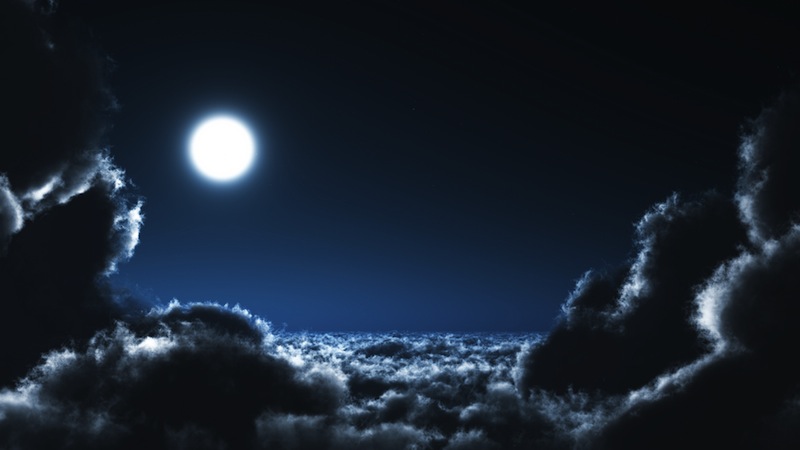Does The Full Moon Make Kids Hyper? Here’s What Science Says

Kids really do sleep less when there's a full moon, but only by a few minutes, according to a new study that included children from a dozen countries.
What's more, the study failed to find a link between the occurrence of the full moon and kids' activity levels, debunking the myth that kids are more hyper during a full moon.
The study "provides solid evidence … that the associations between moon phases and children's sleep duration/activity behaviors are not meaningful from a public health standpoint," the researchers, from the Children’s Hospital of Eastern Ontario Research Institute in Ottawa, Canada, wrote in the March 24 issue of the journal Frontiers in Pediatrics.
The idea that the moon has an effect on people's behavior goes back to ancient times, but studies have found little evidence to back up the idea.
In the new study, researchers analyzed information from more than 5,800 children, ages 9 to 11, from 12 countries around the world (Australia, Brazil, Canada, China, Colombia, Finland, India, Kenya, Portugal, South Africa, the United Kingdom and the United States).
Unlike much of the previous research on children's sleep, the new study did not rely on parents or the kids themselves to report how much sleep the children got. Instead, the children wore accelerometers — which are devices similar to fitness trackers that record body movement and can be used to monitor sleep — 24 hours a day, for at least seven days.
Results showed that children's activity levels — including the amount of time they spent doing high- and low-intensity activity, and their sedentary time — were about the same during a full moon and new moon (the phase of the moon when it is not visible from Earth).
Sign up for the Live Science daily newsletter now
Get the world’s most fascinating discoveries delivered straight to your inbox.
However, children's sleep time was about 5 minutes shorter on nights with a full moon, compared to nights with a new moon. This is about 1 percent of children's total sleep time, the study said. From a health standpoint, such a small effect "is unlikely to be important," the researchers said. [7 Tips to Sleep Soundly Tonight]
It's not clear why children got slightly less sleep on nights with a full moon. One possible reason could be that the brightness of the full moon interferes with children's sleep, the researchers said. However, given the abundance of artificial light in modern societies, this explanation seems unlikely, the researchers said.
It's important to note that the study was conducted over a short time, and did not track children over the course of a whole month. The finding does not prove that the full moon causes children to sleep for shorter periods, the researchers said.
Future studies are needed "to determine if the human biology is in any way synchronized with the lunar cycle," or if the full moon has a greater influence on certain groups of people, the researchers said. "Whether there is science behind the myth or not, the moon mystery will continue to fascinate civilizations in the years to come."
Follow Rachael Rettner @RachaelRettner. Follow Live Science @livescience, Facebook & Google+. Original article on Live Science.

Rachael is a Live Science contributor, and was a former channel editor and senior writer for Live Science between 2010 and 2022. She has a master's degree in journalism from New York University's Science, Health and Environmental Reporting Program. She also holds a B.S. in molecular biology and an M.S. in biology from the University of California, San Diego. Her work has appeared in Scienceline, The Washington Post and Scientific American.









